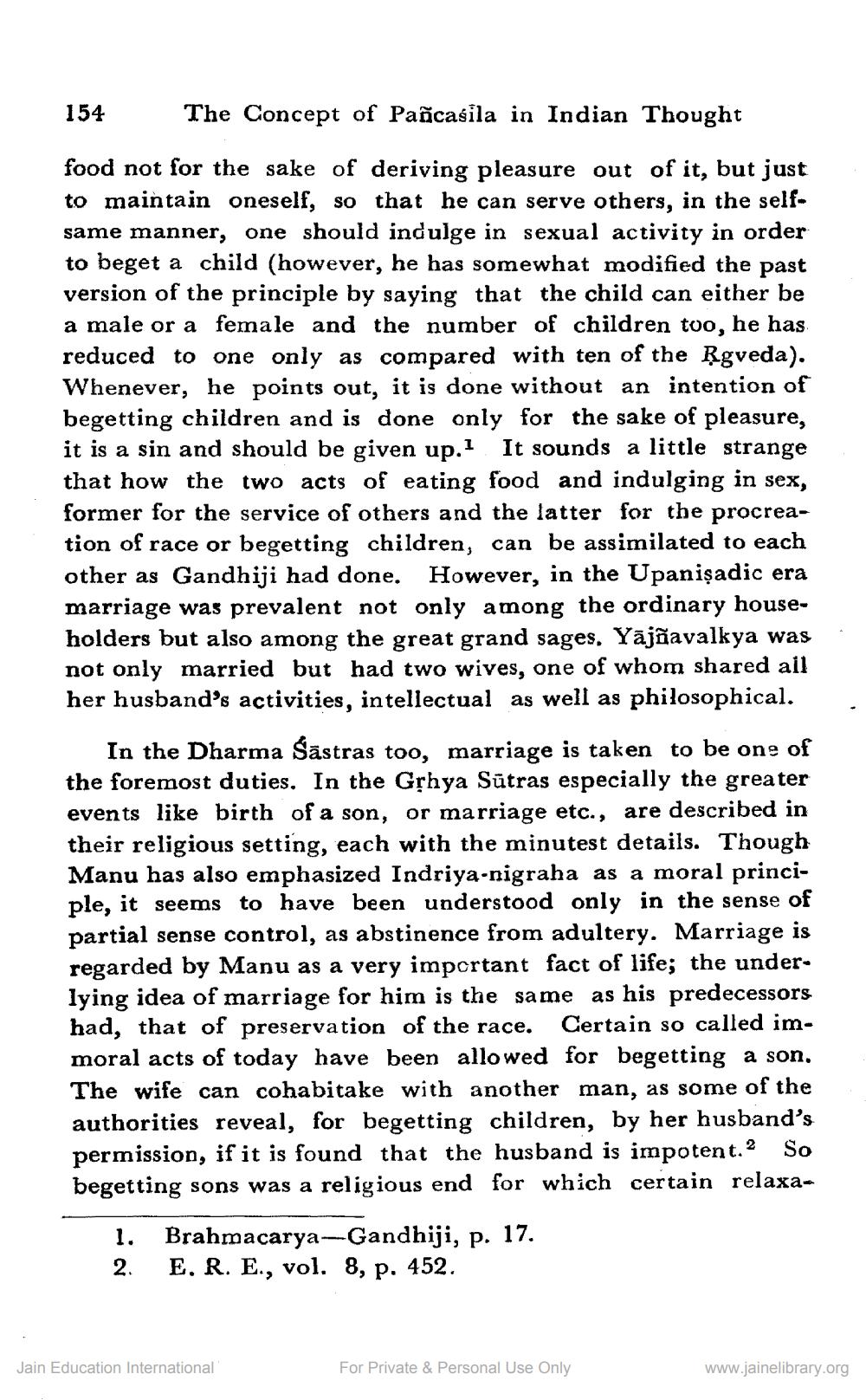________________
The Concept of Pancasila in Indian Thought
food not for the sake of deriving pleasure out of it, but just to maintain oneself, so that he can serve others, in the selfsame manner, one should indulge in sexual activity in order to beget a child (however, he has somewhat modified the past version of the principle by saying that the child can either be a male or a female and the number of children too, he has reduced to one only as compared with ten of the Ṛgveda). Whenever, he points out, it is done without an intention of begetting children and is done only for the sake of pleasure, it is a sin and should be given up.1 It sounds a little strange that how the two acts of eating food and indulging in sex, former for the service of others and the latter for the procreation of race or begetting children, can be assimilated to each other as Gandhiji had done. However, in the Upanisadic era marriage was prevalent not only among the ordinary householders but also among the great grand sages. Yajnavalkya was not only married but had two wives, one of whom shared all her husband's activities, intellectual as well as philosophical.
154
In the Dharma Sastras too, marriage is taken to be one of the foremost duties. In the Gṛhya Sutras especially the greater events like birth of a son, or marriage etc., are described in their religious setting, each with the minutest details. Though Manu has also emphasized Indriya-nigraha as a moral principle, it seems to have been understood only in the sense of partial sense control, as abstinence from adultery. Marriage is regarded by Manu as a very important fact of life; the underlying idea of marriage for him is the same as his predecessors had, that of preservation of the race. Certain so called immoral acts of today have been allowed for begetting a son. The wife can cohabitake with another man, as some of the authorities reveal, for begetting children, by her husband's permission, if it is found that the husband is impotent.2 So begetting sons was a religious end for which certain relaxa
1.
2.
Brahmacarya-Gandhiji, p. 17.
E. R. E., vol. 8, p. 452.
Jain Education International
For Private & Personal Use Only
www.jainelibrary.org




